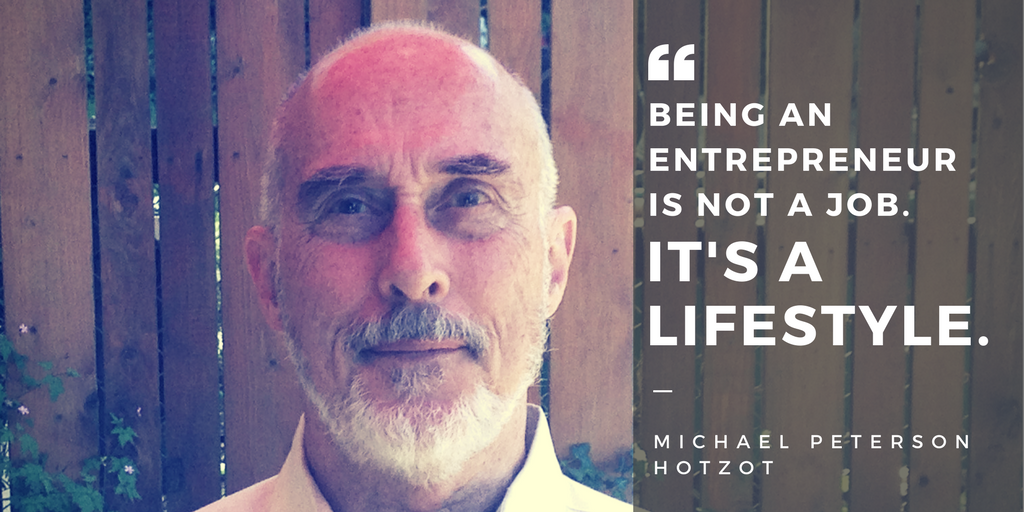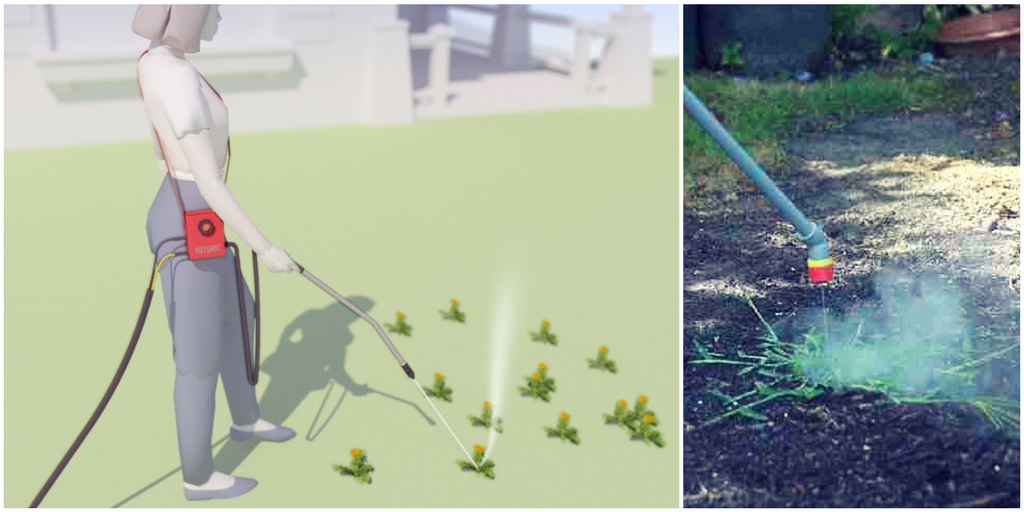
Rising StarMichael Peterson of HotZot Has Invented the World’s Deadliest and Most Organic Weed Killer
We all know weeds are a problem. Our streets may soon be filled with self-driving cars, but somehow no one has yet invented a product that kills weeds while not endangering our other plants, the planet, or ourselves. Well, until now. Enter Michael Peterson and his HotZot. Here, Michael tells us more:

What was the spark that inspired the birth of your concept? Watching my wife put on her grim face as she went into the garden to kill weeds. She’s been a landscape designer/Master Gardener/plant geek for 30 years now and the problem of weeds has never gotten easier. I decided to invent a tool that would kill weeds easily, organically and safely so she could spend more time gardening and less time weeding.
Did you have an aha! moment? While examining concepts for what an organic weed killer could be, I researched and tested lots of marginal ideas – until one morning, while making an espresso, I accidentally hit the wrong switch and suddenly had a jet of very hot water squirting across the counter from the wand. “That’s exactly what I want!” ran through my head. That morning, I went out and bought a half dozen used espresso makers, tore them apart and started to build my first prototype.
What problem does it solve? Gardeners are between a rock and a hard place when dealing with weed control – weeding by hand is hard, grubby, slow work but spraying your garden with toxic herbicides puts your family and the environment at risk. The Garden HotZot deals with both of these problems by letting gardeners kill weeds with a needle thin jet of boiling water. There’s no drift, no overspray and no incidental damage to other plants. It’s safe, quick, easy and organic – it’s a point and shoot solution to an age old problem.

How did you come up with the name? HotShot was taken so my wife came up with “Zot” as the sound that lightening (and the anteater) used to make in the comic strip “BC”.
How do you differentiate from your competition? Flamers/torches can start fires, steamers take a long time to warm up, and weed wackers just cut off the tops. All of these options damage adjacent plants and don’t damage the root of the weed. Roundup spray is associated with many human diseases, is a known endocrine disrupter, and has unstudied effects on the human biome, which contains half of our immune system.
What’s the best thing about being an entrepreneur? The opportunity to create something “new”.
What has been the biggest surprise in your entrepreneurial experience to date? How it’s possible to consistently underestimate how long every single step will take.
Your biggest success? Obtaining our patent.
Do you have a failure story to share? We failed the first four times we submitted our patent. I had to completely rewrite our claims in order to make it past the USPTO claims examiner. In the process, I learned two important lessons:
Lesson 1 – claims are based on the supporting narrative that you file with your patent – make your narrative expansive, include as many unique features as you may want to incorporate in your patent. That way if a series of claims conflict with prior art, you have backup claims to make.
Lesson 2 – if you’re certain that your claim will trump prior art, keep pushing at the claims examiner – their job is to find conflicting art even if it doesn’t apply to your situation. Push back.
Imagine your venture becomes wildly successful. What does that look like? Diminishing sales of glyphosate herbicides for residential and municipal uses.
As an entrepreneur, what keeps you up at night? The “problem” du jour.
What is your #1 piece of advice for a budding entrepreneur? Being an entrepreneur is not a job, it’s a lifestyle.
